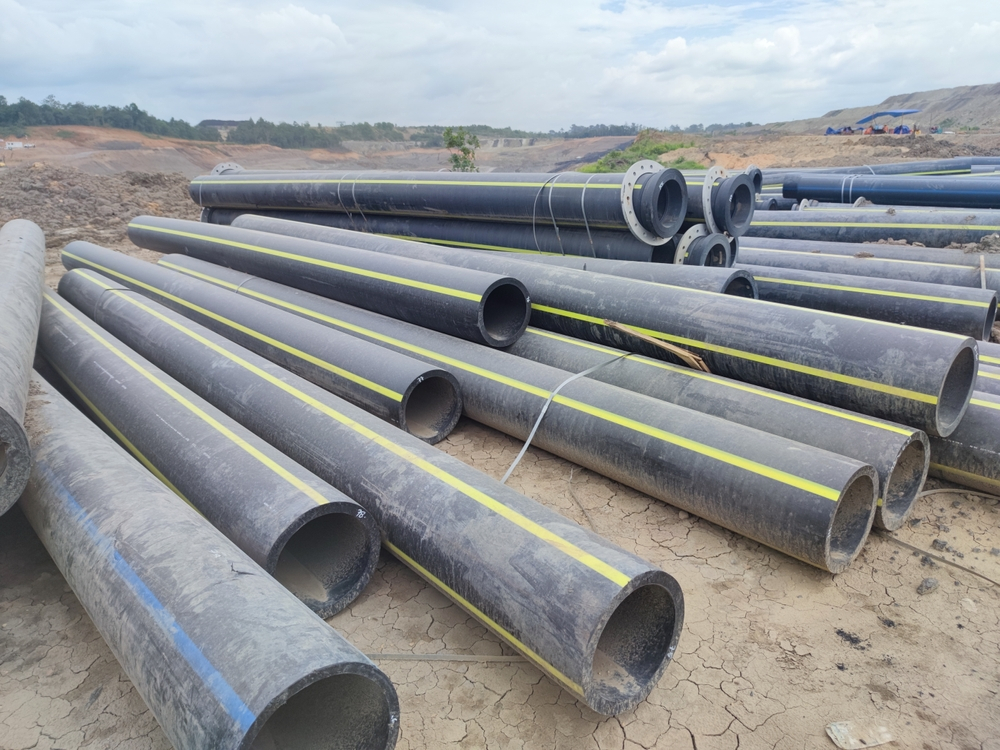American Plastics HDPE Pipe for Oilfield: Efficiency in Harsh Environments
Wiki Article
Comprehending the Trick Benefits of HDPE Pipe for Water and Wastewater Monitoring
The use of HDPE pipeline in water and wastewater monitoring presents many advantages that warrant consideration. Its remarkable toughness and long life-span make it a preferred selection for several projects. Furthermore, the material's resistance to deterioration and chemical damages improves its integrity in numerous atmospheres. Nonetheless, the benefits prolong beyond simply long life and resistance. Discovering its cost-effectiveness and ecological impact reveals also much more engaging reasons for its widespread adoption in modern infrastructurePhenomenal Resilience and Longevity

HDPE pipeline stands out for its extraordinary longevity and durability, making it a recommended choice in water management systems. Constructed from high-density polyethylene, these pipelines can endure significant pressure and anxiety, making sure dependable performance over time. Their robust nature enables them to endure extreme environmental problems, consisting of temperature level variations and soil motions, which can create various other materials to fail.
The lifespan of HDPE pipes commonly exceeds half a century, supplying an economical option for municipalities and industries alike. In addition, the product's lightweight residential properties streamline installation, decreasing labor prices and durations. This sturdiness lessens the need for regular repair services or replacements, further improving its financial charm.
In water management applications, the integrity of HDPE pipes means less disruptions and boosted service continuity, making them important to lasting infrastructure growth. The combination of toughness and durability solidifies HDPE's role as a cornerstone in effective water administration options.

Resistance to Rust and Chemical Damage
While many materials surrender to corrosion and chemical damage over time, HDPE pipes exhibit remarkable resistance, making them suitable for various water monitoring applications. This durability stems from the molecular framework of high-density polyethylene, which is inherently non-reactive and does not rust like steels or deteriorate from direct exposure to rough chemicals. Consequently, HDPE is very efficient in settings with aggressive substances, such as wastewater systems that may consist of acids, bases, and natural solvents.
In addition, HDPE pipelines can endure environmental factors such as dirt acidity and saline conditions, even more boosting their viability for varied applications (Pipe Manufacturing Midland TX). Their ability to keep structural stability in time decreases the danger of leakages and failings, which is essential in guaranteeing the safety and security and dependability of water circulation and wastewater monitoring systems. The resistance to deterioration and chemical damage considerably adds to the total effectiveness and durability of HDPE piping remedies.
Cost-Effectiveness and Economic Advantages
When thinking about the financial ramifications of water monitoring systems, the cost-effectiveness of HDPE pipelines becomes noticeable. These pipes use reduced installation and upkeep costs contrasted to traditional products like steel or concrete. Their lightweight nature streamlines transportation and setup, resulting in reduced labor costs. Additionally, HDPE pipes exhibit a long life expectancy, typically going beyond half a century, which converts to fewer replacements and long-term cost savings.The resistance of HDPE to corrosion and chemical damage lessens the demand for costly fixings and replacements. The pipelines likewise sustain reliable water circulation, reducing energy expenses linked with pumping systems. By minimizing leakages and water loss, HDPE pipelines contribute to considerable financial advantages for municipalities and sectors alike. Generally, the preliminary financial investment in HDPE piping can produce considerable economic returns over the life expectancy of the water administration system, making it a prudent choice for lasting infrastructure growth.
Ecological Sustainability and Lowered Influence
_-_Post_di_Facebook_-_Dimensioni_personalizzate_(1)_60cafdf20856f.png)
Convenience and Adaptability in Installment
Due to their unique residential or commercial properties, HDPE pipelines supply exceptional adaptability and adaptability in installation, making them ideal for a large range of applications. Their light-weight nature enables for easier handling and transport, lowering labor expenses and setup time. HDPE pipelines can be bent and formed to fit numerous terrains and task requirements, which is especially beneficial in challenging settings.Furthermore, their resistance to deterioration and chemical damages allows for installation in varied setups without the requirement for specialized safety finishes. The capability to fuse joints develops a continual, leak-free system, enhancing the overall honesty and dependability of the installment. HDPE's adaptability additionally accommodates ground activity, minimizing the threat of damage in areas prone to changing soil. Overall, these characteristics make HDPE pipes not just functional however also a preferred selection for water and wastewater monitoring systems.
Frequently Asked Questions
Just How Does HDPE Pipe Compare to PVC in Water Monitoring Applications?
HDPE pipeline provides premium adaptability, resistance to deterioration, and resilience compared to PVC. Its lighter weight promotes easier installation, while its lengthy lifespan minimizes substitute prices, making HDPE a favored option in water administration applications.What Is the Life Expectancy of HDPE Pipes Under Normal Conditions?
Under normal problems, HDPE pipes can have a life-span ranging from 50 to 100 years. Their durability and resistance to rust contribute to their long-term performance in numerous applications, making them a trusted choice for infrastructure.Are HDPE Pipeline Recyclable After Their Service Life?
Yes, HDPE pipelines are recyclable after their service life. Midland TX HDPE Pipe Fittings in Stock. They can be refined and repurposed right into brand-new products, substantially minimizing environmental influence and promoting sustainability within the market, making them an environmentally friendly option for piping remediesWhat Is the Installation Process for HDPE Piping?
The setup procedure for HDPE pipes involves site prep work, trenching, pipe fusion or mechanical signing up with, backfilling, and stress testing. Appropriate techniques ensure a long lasting and reliable system for transporting water and wastewater successfully.Can HDPE Water Lines Be Made Use Of for Both Potable and Non-Potable Water Equipments?
Yes, HDPE pipes can be utilized for both drinkable and non-potable water systems. Their convenience, durability, and resistance to corrosion make them appropriate for different applications, making sure risk-free and effective transportation of water in different contexts.Report this wiki page